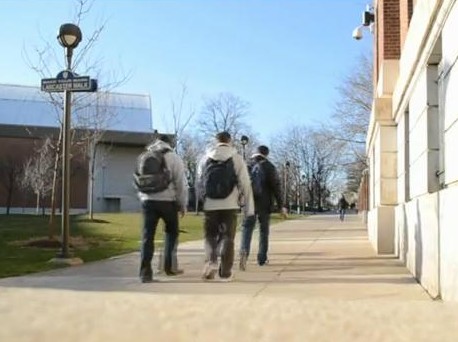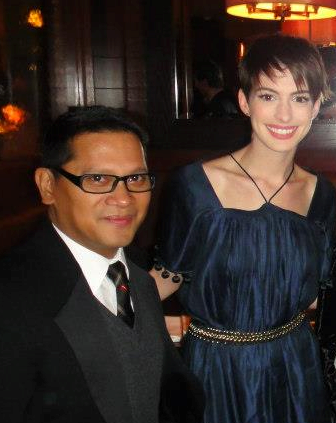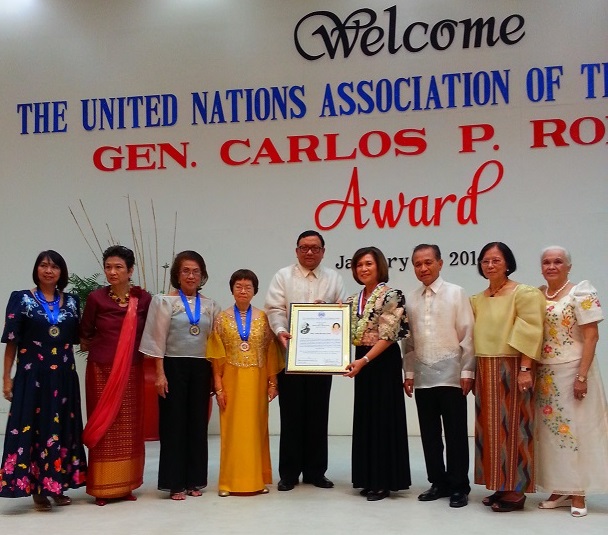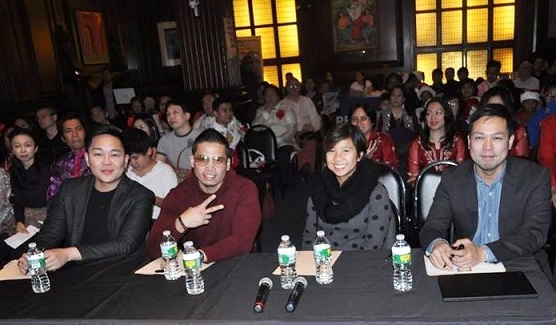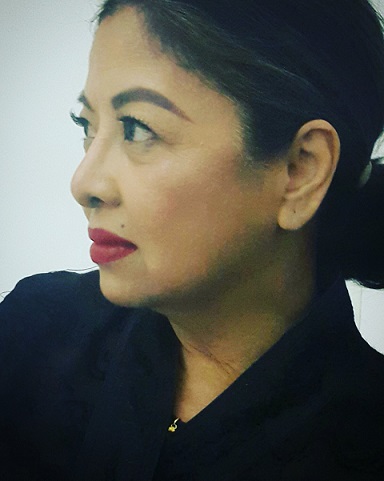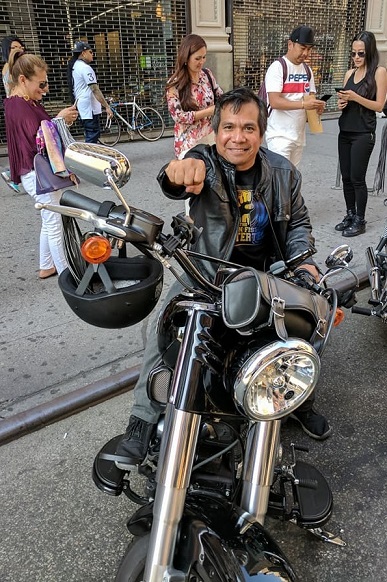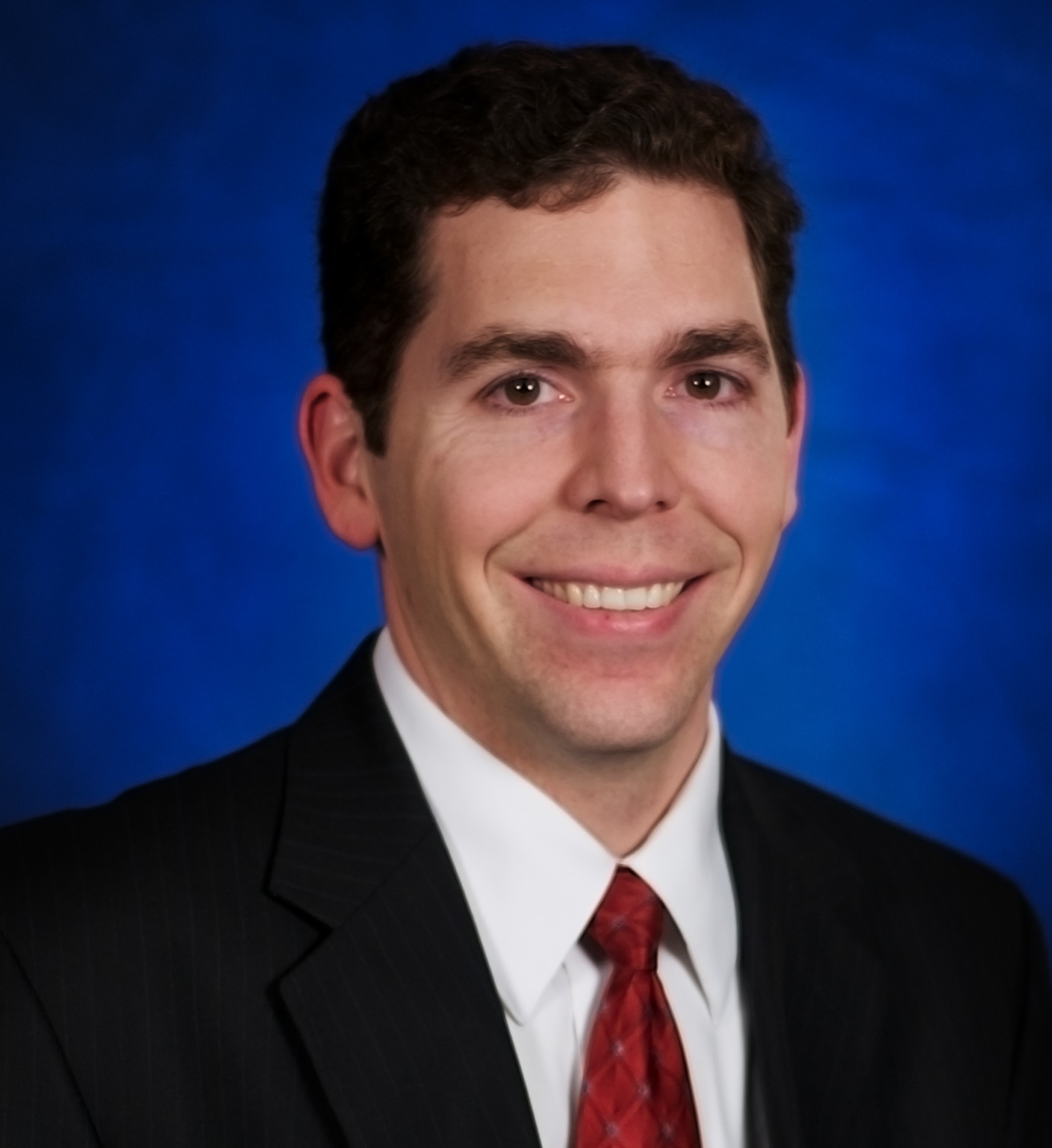‘In my prayers, I ask the baby for forgiveness’
By Maricar CP Hampton
Pro-life nurse Catherina Cenzon-DeCarlo is suing Mount Sinai hospital for compelling her to assist in an abortion. In the following interview, she explains why the trauma of May 24, 2009 felt like “I had been raped.”
TF: How are you doing at work? Do you feel like you’re being treated like a pariah?
CCD: I’ve had some emotional ups and downs because of this incident. People I used to have good relations with have withdrawn from me because of fear of being associated with me. Co-workers and supervisors treat me as an outcast. For example, I am not invited to events that everyone in my cluster is invited to. It’s been a hostile work environment overall.
TF: Why don’t you just work for another hospital?
CCD: My family is dependent on my income at Mount Sinai. I have a legal right to work here.
TF: Is this the first time you have declined to assist in a medical procedure because of your religious beliefs?
CCD: I was willing to participate in D&C (dilation & curettage) miscarriage cases, but not in abortion cases where the procedure intentionally kills the child. Mount Sinai knew this when they hired me. During my job interview with them in 2004, they asked me about my willingness to assist in abortions. I told them that because of my religious views I would have to object to assisting in any abortion of children still living, though I would have no objection to assisting with miscarriages. The officials who hired me didn’t have any concerns about my objection. In fact I’ve treated many patients with pregnancy complications, including many with preeclampsia.
TF: How did the abortion affect you psychologically, emotionally?
CCD: I suffered intense emotional trauma. I’m now seeing a psychologist on a regular basis. I’m having nightmares with the thought that I helped in a procedure that murdered an innocent child. In my prayers, I always ask the baby for forgiveness.
TF: Can you walk me through that morning of May 24, 2009?
CCD: My shift began at 7 a.m. I was in the on-call room for nurses with on-call shifts. On that day, because of mechanical work in the facility, the nurses were directed to the OR patient holding area on the sixth floor of the Annenberg building. That morning, the doctor, an assistant clinical professor at the medical school that is part of Mount Sinai, had scheduled a woman for a 22-week age of gestation abortion. The abortion would be done by D&E (dilation and evacuation) on a preborn child still alive, but I didn’t know that at the time. I walked to the receptionist in the hall to see if I had been assigned to any surgeries. The receptionist told me I was assigned to a D&C case.
I immediately went to the assigned surgery room and began preparing the room. The patient had not arrived yet. Then the case cart arrived with instruments that I recognized as being possibly used for non-miscarriage abortions. I examined the paperwork for the case. The handwriting was illegible. I began to wonder whether the abortion was on a live child and what the patient’s diagnosis was.
I called the resident who had booked the case for the doctor. They explained to me that the case was a D&E, that the woman was diagnosed with preeclampsia, and that the preborn child in the case was still alive. I categorically stated I would not participate in the abortion. I told them about my religious and Catholic beliefs.
TF: What is your religious background?
CCD: I’m a Roman Catholic. My uncle is a Catholic bishop. I was raised in a very devout Catholic family. I will not participate in abortion procedures that kill preborn children.
TF: What was going through your mind before and during the procedure?
CCD: Although I was distraught and devastated, in protest I returned to the surgery room and finished my pre-surgery duties. I treated the patient with respect and professionalism. I made sure that the patient had no knowledge of my objection. However, the scrub technician and the anesthesiologist expressed surprise to see me assisting. I explained to them, outside of the patient’s presence, that I was being forced to participate under protest. They expressed complete sympathy with me.
TF: Explain on-call shifts to me.
CCD: On-call shifts are a benefit and privilege of employment for qualified nurses. Employees on the on-call shifts earn a fraction of their regular hourly rate when not called, and an increased hourly rate when called. But as a result of this incident, there has been a decrease in my on-call cases.
TF: Before this incident, how would you characterize your performance as an RN at Mount Sinai?
CCD: I was hired as an operating room nurse in August 2004. I’ve received exemplary performance reviews and professional appreciation from my superiors and the doctors I worked with. I’m recognized in the hospital as being experienced and highly competent in neurosurgery, gynecology, urology, orthopedics, ophthalmology, and liver transplants, and other procedures including plastic surgery.
TF: Does it worry you that this incident might affect your employability in the future?
CCD: Insubordination and patient abandonment, as my superiors have threatened to charge me, would severely jeopardize my future employability.
TF: Has Mount Sinai offered any apology or perhaps suggested possibly dropping the case?
CCD: They have not.
TF: What’s your nursing background in the Philippines?
CCD: I graduated with a Bachelor of Science degree in nursing from St.
Louis University in Baguio 1995. I worked for one year in the Philippine National Red Cross working in several areas including rescue and first aid training. Then I became a volunteer nurse in the medical unit of Baguio General Hospital and Medical Center.
In 1997, I switched fields and began working as a pharmaceutical representative, though I continued volunteering as a nurse during that time. I returned to nursing full-time. In 1998 I became a staff nurse at The Medical City in Mandaluyong. At Medical City, I treated many patients with pregnancy complications, including many with preeclampsia.
TF: When did you come to the U.S.?
CCD: I moved to New York in 2001 to work under an alien worker immigrant visa. Initially, I held staff nursing jobs at a rehabilitation facility and then at an acute care teaching hospital in Far Rockaway. I served in the endoscopy, ambulatory surgery and medical-surgical units and assisted in many surgical cases. In 2003, I was hired as an operating room and endoscopy staff nurse at a community teaching hospital in Far Rockaway. I did circulating and scrub nurse responsibilities and covered many surgical cases. I recently became a United States citizen.
Matt Bowman of the Christian non-profit Alliance Defense Fund, who is providing pro bono legal assistance, said Catherina’s case is awaiting two important decisions: one in state court and another in her complaint filed with the Department of Health and Human Services.
He said racial discrimination is not presently an issue and “would not be explored until the case moves forward.”
What is certain, he said, is that the hospital violated the nurse’s right of conscience. “Mount Sinai’s illegal compulsion violated federal and state law that protects health professionals from being forced to violate their conscientious beliefs against assisting abortion.”
Catherina’s being a civil case, she is seeking an injunction protecting her and others from being forced to assist abortions, and damages in an amount to be determined later at trial, Bowman said.
Catherina lives in Brooklyn with her husband Paul, whom she married in 2005. They have a 4-year-old child.
Maricar CP Hampton is a freelance journalist. She was awarded a 2010 New America Media fellowship on Ethnic Elders and Caregiving.

